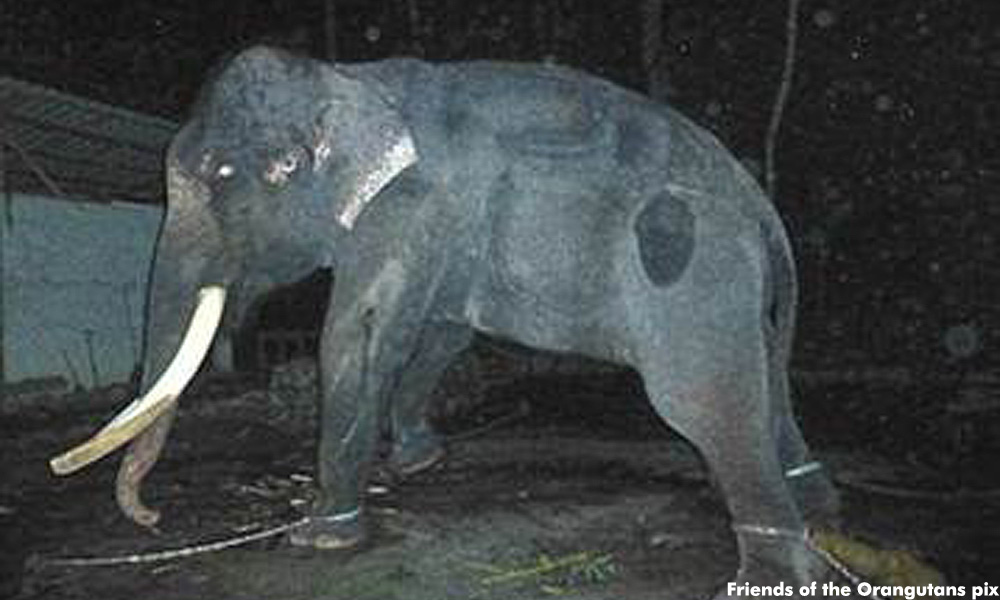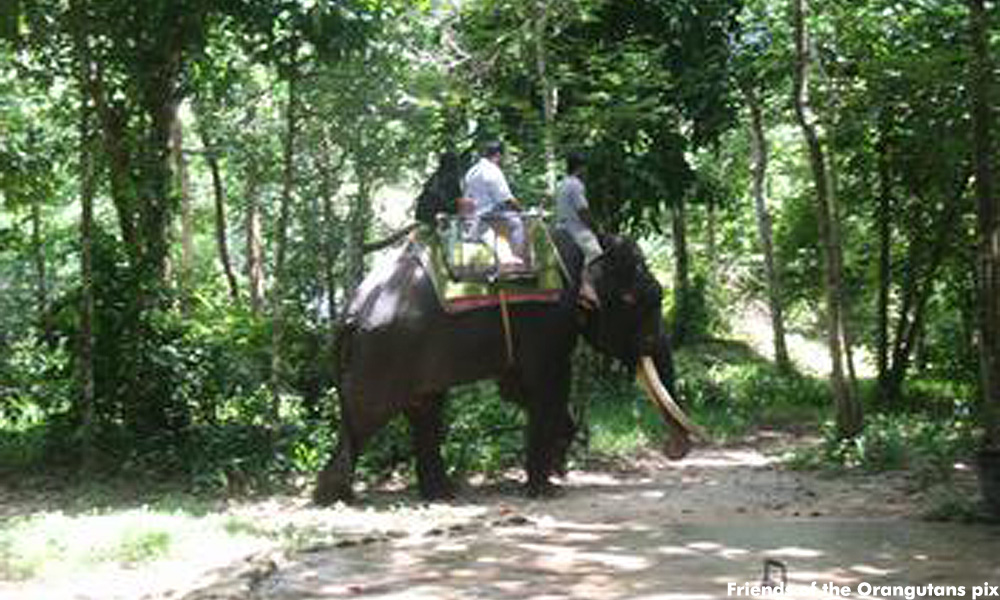LETTER | Following the killing of an elephant’s owner in Thailand by his own male elephant, Sahabat Alam Malaysia (SAM) has once again raised questions about the wider issues surrounding the use of elephants in tourism.
Elephant rides are a popular tourist activity especially in Thailand, Cambodia, Nepal and other parts of Asia and some regions of Africa. It is not as common in Malaysia though there are some locations in the country offering elephant riding activities.
The appeal of elephant treks is clear. In many ways, an elephant ride is an equivalent experience to swimming with dolphins. However, there is a dark side to elephant tourism that people are not aware of.
Wild elephants will not allow humans to ride on them. In order to tame a wild elephant, it is tortured to break its mind, body and spirit. They are subjected to extremely cruel training practices involving repeated beatings and stabbings with bullhooks, to starving and deprivation of sleep for many days.
Scars and injuries from bullhooks and chains are often visible. This is the general and accepted practice elephants have to undergo in Thailand to be trained for tourism, circuses or other performances.
The many abuses the elephants have to undergo have prompted international animal groups and celebrities to voice their stand against elephant riding. One such person is the renowned French animal activist Brigitte Bardot who wrote to the Natural Resource and Environment Minister (NRE) to release Lasah (photo) a Malaysian elephant held captive in Langkawi for rides, to an elephant sanctuary.

Despite their size, elephants are not designed for carrying people on their backs all day which can lead to permanent spinal injuries. However, it is not just the weight on their spines but the actual implications from having the chair or howdah attached to their backs.
The contraption rubs on their backs causing blisters that can get infected. Then there is the wear and tear on the elephant’s feet. Long-term trekking can cause foot infections and chronic foot and joint problems.
Out of the tourists visiting hours, many elephants display behaviours such as repetitive swaying from side to side and pacing. Signs of distress and boredom from lack of stimulation, enrichment, and the lack of freedom to express natural behaviour due to being chained on a short chain, and living solitary lives in inadequate conditions. They have been deprived of all these needs when forced to cart people around all day.
In order to feed the booming elephant tourism industry, a continuous supply of elephants is needed. Hunt for elephant calves can result in the death of up to five adult elephants as herd members attempt to protect calves.
Calves may die from the separation from their mother or the cruel subduing and training procedures. Scientists estimate that between 50 and 100 young elephants are captured in Myanmar alone every year and then smuggled to Thailand for activities like this where there is money to be made.

Responsible tourists have the power to reduce that demand and change the industry now. They can help by convincing travel companies and tour operators to stop promoting attractions that profit from elephant cruelty. Riding an elephant may be a lifetime experience but all of these can have very serious animal welfare and safety risks for tourists.
Tourists are given the impression they are contributing to a good cause and are encouraged to continue supporting these activities. But this is often an exploitation of the tourists’ concern for elephants. Travel companies should stop selling tickets or promote venues offering elephant rides and shows.
It is not uncommon for tourist events in which elephants are featured to result in dangerous accidents. This danger, much like the cruel treatment of the elephants, is rarely made public to tourists and the travel industry.
Clearly, the use of elephants in tourism is fueling cruelty and the demand for elephants to feed the tourism industry has resulted in the organised illegal trade of wild elephants in areas of Asia.
The way elephants are treated is nothing less than shockingly cruel, disgraceful, and elephant rides and all other activities using elephants in the name of entertainment should be banned.
The views expressed here are those of the author/contributor and do not necessarily represent the views of Malaysiakini.

